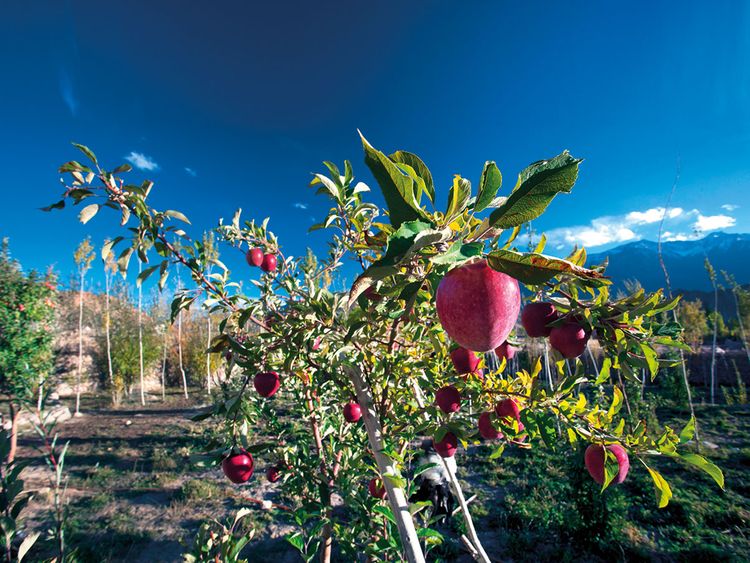The dry spell in March and the first week of April has left the Valley’s fruit growers worried as it may affect yield. March, which is usually considered the wettest month of the year, saw very few spells of rain this time
The dry spell in March and the first week of April has left the Valley’s fruit growers worried as it may affect yield. March, which is usually considered the wettest month of the year, saw very few spells of rain this time. The summer capital of J&K, Srinagar, recorded its hottest March since 1891 when the collection of weather data in Kashmir was started.
Director general of horticulture, Ajaz Ahmad Bhat, said, “The higher temperatures have left fruit growers worried. If the dry weather conditions continue to prevail, the crops could be adversely affected.”
Bhat said that the orchards in Karewas and new plantations are quite susceptible to warm climatic conditions and could face damage. “To counter the situation, orchardists should irrigate their orchards, besides mulching, which is known to conserve soil moisture. Whitewashing the trunk in the spring helps the tree stay cool, as it reflects sunlight and heat away. A cooler tree has less stress and can open its stomata longer for gas exchange. More carbon dioxide into the tree gives it more energy for vegetative and fruiting growth. It will also help in preventing sunburn and cracking of trunk surface,” he said while giving advice to growers on how to tackle dry spells.
Showkat Ahmad Shah, who owns a big apple and pear orchard in Vilgam Kupwara, said the dry spell is very perturbing. “This was the time when rains used to keep our orchards moist and the results would have been in the shape of good fruit. Even if it rains in the next few weeks, things can change, otherwise, it will be a disaster for our industry.”
Another grower, Zahoor Ahmad, said that rains and moisture are very necessary for fruit crops in March and April. “This winter there was less snowfall and warm temperature resulted in early flowering. We are still hopeful it will rain in the coming weeks otherwise there will be very less apple and pear yield.”
The lack of rainfall can also impact the season’s first cash crops like cherry, peach, apricots, and plums. Growers say they will start to harvest cherry fruit next month and for better yield, rains are mandatory.
Weather experts believe the current dry spell is a result of global warming.
“The world is moving more towards global warming after beginning its journey from the Ice Age. Specifically this year, hot and dry winds are prevailing over Jammu and Kashmir,” said Mohammad Hussain Mir, a meteorologist at the Srinagar center of IMD.
“The winds from the Mediterranean, which flow over J&K, are coming over from dry areas. From the Mediterranean, these follow the route of West Asia Iraq, Iran, Afghanistan and Pakistan and at no place are they able to absorb moisture,” he said.




